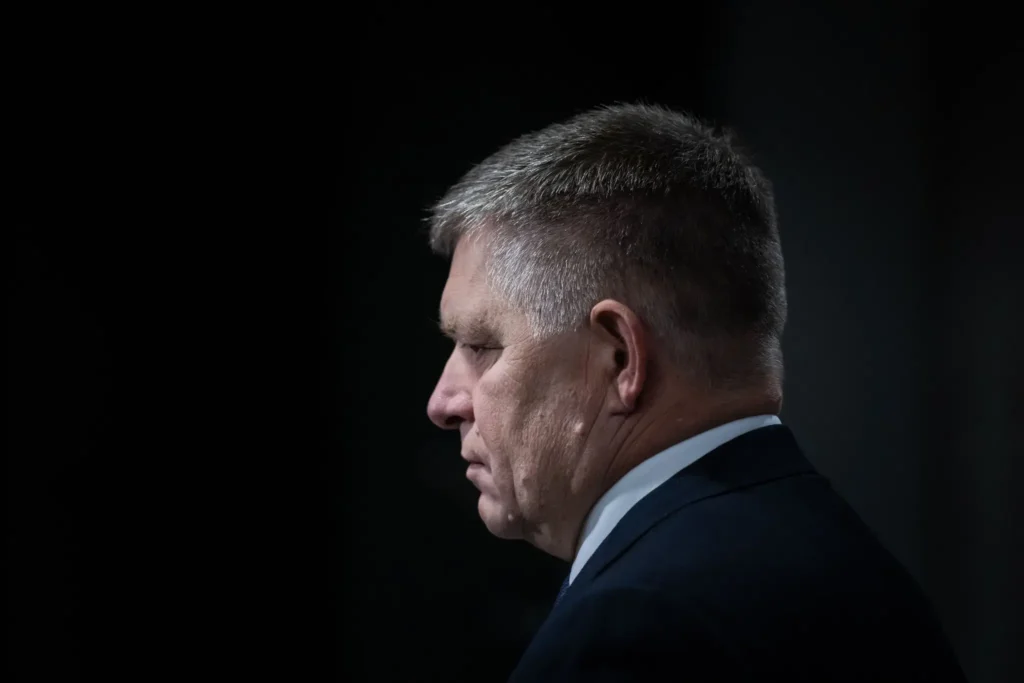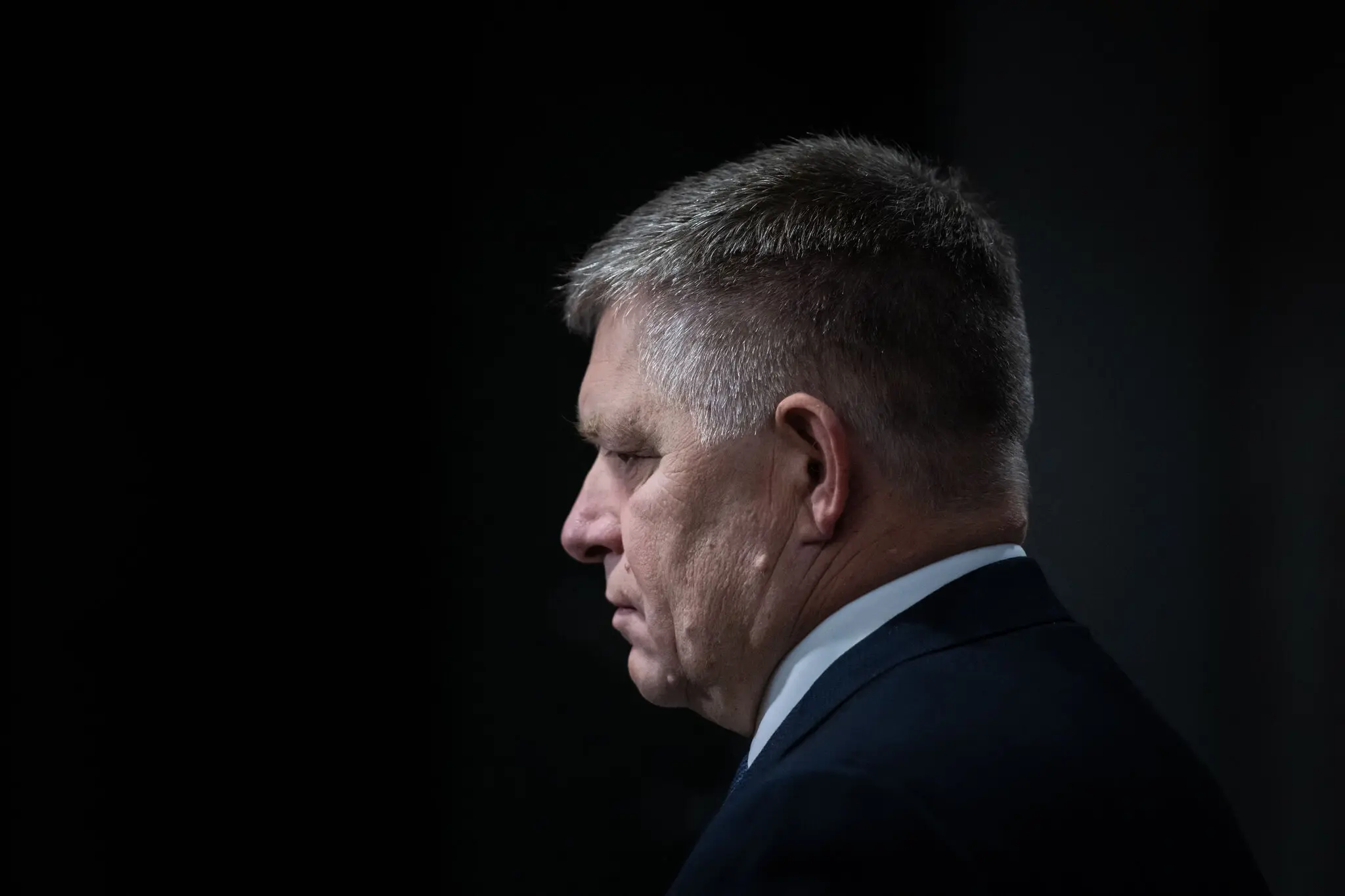Robert Fico, Slovakian Prime Minister, Slovakia politics, Robert Fico biography, Slovakian government, Slovakia-Russia relations, Viktor Orban, Vladimir Putin, Smer party, Jan Kuciak, European Union politics, Ukraine conflict, pro-Russian sentiment, Central European politics
Discover the complex political journey of Robert Fico, Slovakia’s longest-serving Prime Minister. Explore his controversial ties with Russia and Hungary, his impact on Slovakian politics, and the challenges he faces in balancing domestic priorities with international pressures.

Who Is Robert Fico, the Slovakian Prime Minister?
Robert Fico, the current Prime Minister of Slovakia, is a figure of considerable influence and controversy in European politics. At 59 years old, he has played a pivotal role in the political landscape of Slovakia since the country gained independence in 1993. His tenure as Prime Minister, the longest in the history of independent Slovakia, has been marked by significant political shifts and alliances, particularly with Russia’s President Vladimir Putin and Hungary’s Prime Minister Viktor Orban.
Robert Fico Early Political Career and Rise to Power
Slovakia’s journey to independence began with the Velvet Revolution in 1989, a series of peaceful protests that led to the end of Communist rule in Czechoslovakia. This movement set the stage for the eventual split of Czechoslovakia into the Czech Republic and Slovakia in 1993. Robert Fico, who was a member of the Communist Party during its rule, adapted to the changing political landscape by founding the Smer party in the late 1990s.
Smer, initially positioned on the political left, gradually shifted towards more right-wing views, particularly on immigration and cultural issues. Fico first became Prime Minister in 2006, serving for four years before his coalition lost the election. Despite this setback, he remained a significant political force, eventually returning to power in 2012.
Robert Fico Leadership and Controversies
Fico’s second term as Prime Minister was marred by controversy, culminating in his resignation in July 2018. This followed mass protests triggered by the murder of investigative journalist Jan Kuciak and his fiancée, Martina Kusnirova. Kuciak had been investigating government corruption, and their deaths sparked the largest demonstrations in Slovakia since the Velvet Revolution. The public outcry demanded governmental accountability and new elections, reflecting widespread dissatisfaction with the state of the nation under Fico’s leadership.
Despite his resignation, Fico’s influence persisted. He returned to power following an election in the fall of 2023, where his party secured around 23 percent of the vote. His campaign capitalized on anti-sanctions sentiment regarding Russia, particularly in the context of the Ukraine conflict. Slovakia’s historical pro-Russian sentiment played into Fico’s hands as he promised that not a single round of Slovak ammunition would be sent to Ukraine, a stance that alarmed many European Union leaders.
Ties with Russia and Hungary
Fico’s connections with Putin and Orban have been a focal point of international discourse. His opposition to the sanctions imposed on Russia after its full-scale invasion of Ukraine in February 2022 positioned Slovakia as a potential disruptor in the European Union’s unified front supporting Ukraine. This potential alliance with Hungary’s Orban and possibly Italy’s leader, Georgia Meloni, raised concerns about the stability of the EU’s pro-Ukrainian bloc.
Slovakia’s contributions to Ukraine’s military efforts have been minimal compared to major powers like the United States and the United Kingdom. However, Slovakia did join other EU nations bordering Ukraine in blocking imports of Ukrainian grain, citing concerns over the impact on local farmers. This move further underscored Slovakia’s cautious stance on the conflict and its broader geopolitical implications.
Slovakia Under Fico’s Leadership
Under Fico’s leadership, Slovakia has navigated a complex political and economic landscape. The country’s high ranking in press freedom assessments stands in stark contrast to the protests and calls for deeper systemic changes that marked Fico’s previous terms. His return to power in 2023, amidst a backdrop of geopolitical tension and internal discontent, highlights the enduring complexities of Slovakian politics.
Fico’s tenure has been characterized by a balancing act between domestic priorities and international pressures. His stance on Russia and Ukraine reflects a broader regional dynamic, where historical ties and contemporary geopolitical realities intersect. The concerns of EU leaders about a potential pro-Russian alliance involving Slovakia underscore the delicate balance Fico must maintain in navigating both internal and external political currents.
Future Prospects
Looking ahead, Robert Fico’s leadership will likely continue to be a subject of intense scrutiny and debate. His ability to navigate Slovakia’s domestic challenges, including economic issues and public discontent, will be crucial. Additionally, his relationships with key international figures and his stance on pivotal issues like the Ukraine conflict will significantly impact Slovakia’s role within the European Union and the broader geopolitical landscape.
Fico’s political journey, marked by resilience and adaptability, mirrors Slovakia’s own evolution as a young nation finding its place in a rapidly changing world. As he continues to shape the country’s future, the interplay between his domestic policies and international alliances will be pivotal in determining Slovakia’s trajectory on the global stage.
Conclusion
Robert Fico remains a significant and controversial figure in Slovakian and European politics. His leadership has been marked by significant achievements and equally notable controversies. His close ties with leaders like Putin and Orban, his stance on the Ukraine conflict, and his handling of domestic issues have all contributed to a complex legacy. As Slovakia continues to navigate its path in the European and global arenas, Fico’s role and decisions will undoubtedly play a crucial part in shaping the nation’s future.
Read More-
